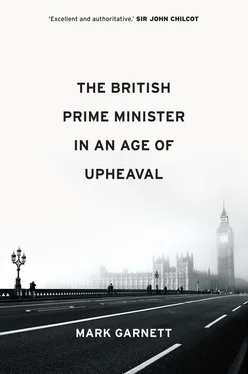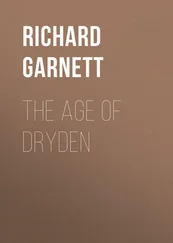Without anticipating the detail of the argument presented in this book, it is worth noting that while all liberal democracies have been affected by ‘spin’ in recent decades, arguably Britain is uniquely vulnerable to the contagion. This is because all Prime Ministers since 1945 – with the partial exception of Edward Heath – have felt it necessary to act as ‘spin doctors’ on behalf of their country, delivering speeches that present Britain as a major power which could (under appropriate leadership) prove even more influential on the global stage than in the days when its empire spanned more than a quarter of the inhabitable world (see chapter 5). It is possible that Margaret Thatcher really accepted this delusional view, although it would be more charitable to suppose that she thought British politicians had exaggerated the extent of the country’s relative decline and that it was time for its leaders to err on the opposite side. It is, though, unlikely that any of Thatcher’s successors have suffered from serious private illusions about Britain’s relative position. Nevertheless, they have all participated, with apparent enthusiasm, in the self-defeating ‘spin’ operation, declaring that they are ‘batting for Britain’ (in dealings with the European Union (EU)) and boasting that the country ‘punches above its weight’ in matters relating to the non-European world. In this respect, at least, Thatcher and her successors have brought an unsustainable tension into their own working lives, forcing them somehow to live up to unrealistic expectations and leading (among other things) to the humiliating departures from office of David Cameron and Theresa May.
The Prime Minister in history and theory
Since its inception (generally associated with the prolonged political dominance of Sir Robert Walpole (1721–42)), the role of British Prime Minister has attracted considerable and understandable attention from a variety of perspectives. The interest has increased in the years since 1979, thanks chiefly to the arrival in office of the most noteworthy individual to hold the office since Churchill was finally chiselled out of Downing Street in 1955. Although the primary subject-matter is the same, and their approaches sometimes overlap, the authors of important studies of the role can be consigned to five camps.
(1) Contemporary historians : these focus on individual Prime Ministers – their innate qualities, and their interactions with the broader context of their careers – or a succession of such individuals. Anthony Seldon is a prime example, having published studies of Major, Blair, Brown, Cameron and May, all of which are based on meticulous research including interviews with key participants.
(2) Practising (or former) politicians : these include individuals (like Richard Crossman, John Mackintosh and even Dr Gordon Brown) who were academics as well as politicians, but also non-academics (like Tony Benn and Graham Allen) who have tried to reach a critical understanding of the Prime Minister’s role rather than merely reflecting on current developments. These observers might seem more authoritative than people whose analyses arise from second-hand knowledge. However, the view from ‘the inside’ could be misleading for other reasons: certainly the practitioners who have written on this subject are far from unanimous in their conclusions.
(3) Authors of memoirs and diaries : these include politicians and important officials who have recounted their experiences and observations without the primary purpose of shedding light on the Prime Minister’s role. During the Thatcher years it seemed obligatory for Cabinet ministers to write their memoirs. As sources of insights these were of variable quality, but the best (like Nigel Lawson’s compendious The View from No. 11 (1992)) are invaluable. The publication in 1993 of diaries written by the maverick Thatcherite Alan Clark sparked a revival of this genre. Even if original diaries were redacted before publication, their main value for scholars lay in the unwitting revelations – often ones which the authors thought too trivial to leave out. In this respect, Labour politicians and their highly placed supporters have been far more prolific than their Conservative counterparts, so that anyone who was sufficiently interested could compile a voluminous day-to-day record of New Labour’s period in office (1997–2010) on the basis of these publications. The main contributor to this avalanche of research-rich material is Alastair Campbell. While his friend Alan Clark enriched Britain’s political literature by recounting the experiences of a narcissist who came close to the inner circles of British government, Campbell’s published diaries are the reflections of an incurable, indefatigable reporter, whose diligence as a diarist makes even the prolific Tony Benn look like a dilettante.
(4) Journalists : these include authors who have provided day-to-day snapshots for various media outlets, as well as those (like Andrew Rawnsley and Tim Shipman) who have published substantial studies of specific episodes. It seems churlish to deny the most perceptive of these authors honorific membership of the ‘contemporary historian’ club. They are distinguished here by their different vantage point, as bona fide inhabitants of the ‘Westminster village’ rather than occasional academic visitors.
(5) Last, but emphatically not least, are political scientists whose contributions are outlined in the rest of this section, mainly for the benefit of students of the subject. Readers with non-academic reasons for reading the book can be assured that this part of the literature is not revisited until the concluding chapter; and even then the main purpose of the discussion is to summarize the argument offered here rather than to engage too closely with existing interpretations.
For political scientists who have examined the role since 1945, the key questions have concerned the decision-making power of Prime Ministers – ‘Can they dominate the policy-making agenda, or are they heavily constrained by the Cabinet and/or other significant actors?’ – and an evaluation of the role in relation to institutions in other countries (e.g. ‘Is the British Prime Minister becoming more like a US President?’). Before 1979, the most widely discussed contributions came from scholars who argued that the Prime Minister’s role was superseding that of the Cabinet, which since the publication in 1867 of Walter Bagehot’s The English Constitution (1963) had been regarded as the fulcrum of the British system. According to the revised argument, Britain’s government was now essentially ‘prime ministerial’. Significantly, the best-known proponents of this view – John Mackintosh (1929–78) and Richard Crossman (1907–74) – were both active political practitioners as well as academics.
This new interpretation was not universally accepted, partly because of its troubling implications but also because it seemed at best an over-simplification of the real situation. All systems of government are complex – not least liberal democracies, which are supposed to depend on the voluntary adjustment of interests, mediated by sophisticated bureaucracies as well as political parties which are influential in themselves. Even before the advent of Margaret Thatcher, political scientists had qualified the picture presented by Mackintosh and Crossman (e.g. Jones, 1965, 167–85). They were joined in 1976 by an even more eminent analyst-practitioner, the recently retired Prime Minister Harold Wilson, who tried to demonstrate that Cabinet government was alive and well, thanks not least to his own unswerving fealty to constitutional convention (Wilson, 1976).
In his introduction to a volume devoted to the role of the Prime Minister, Anthony King wrote that, ‘With luck, interest in the remarkable premiership of Margaret Thatcher will have the effect of further stimulating interest in the prime ministership’ (King, 1985, 10). This was a pretty safe expectation, although the debate became more contentious after Thatcher had left office. Michael Foley’s provocative book The Rise of the British Presidency (published in 1993) asserted that Thatcher’s approach to governance had taken Britain beyond a merely ‘prime ministerial’ system, and that in important respects she had acted as if she were a President. As an expert in US politics, Foley was able to identify specific examples of ‘presidential’ tendencies during the Thatcher years. Using terms like ‘spatial leadership’ and ‘leadership stretch’, he argued that just like a US President British Prime Ministers can distance themselves from their parties, exploiting the media in particular as a means of reinforcing the idea that their authority arises from a personal connection with the electorate (Foley, 1993).
Читать дальше












